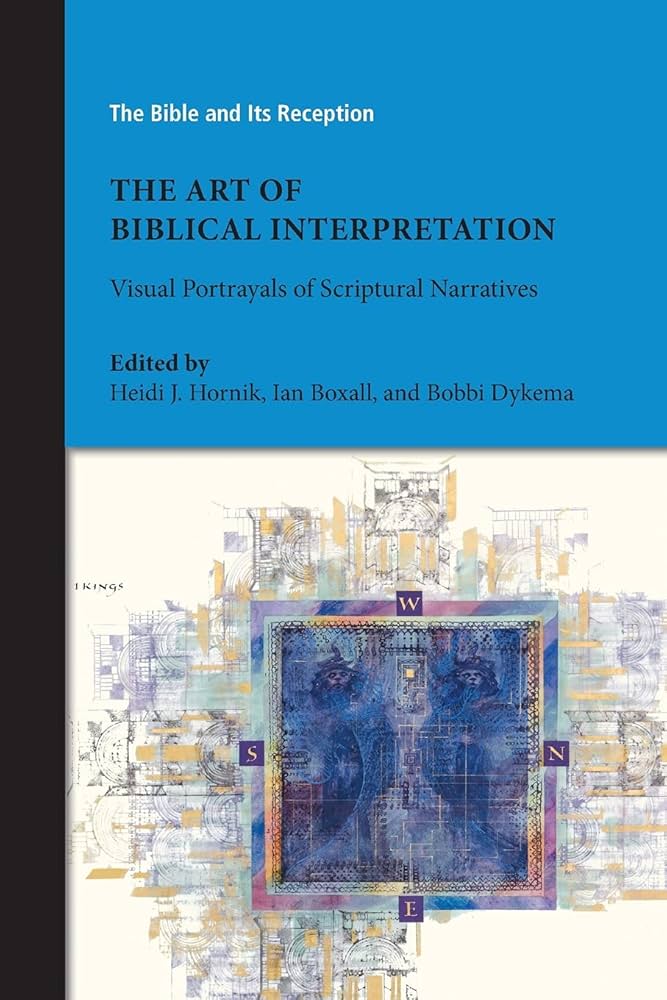
Bible works refer to any written or printed material that aims to provide commentary, interpretation, or study aids for the Bible. These works can take various forms, including:
- Commentaries: Provide detailed explanations and analysis of specific Bible passages or books.
- Devotionals: Offer daily or weekly readings with accompanying reflections or prayers.
- Study Bibles: Include notes, maps, charts, and other resources to enhance Bible study.
- Concordances: Alphabetical listings of words or phrases found in the Bible, along with their references.
Bible works play a crucial role for Christians and Bible students by:
- Enhancing understanding: Providing deeper insights and explanations of complex biblical concepts.
- Promoting reflection: Encouraging readers to engage with the Bible on a personal and meaningful level.
- Facilitating study: Offering tools and resources that make Bible study more accessible and efficient.
Throughout Christian history, Bible works have been instrumental in shaping biblical interpretation and understanding. Notable examples include:
- Origen’s Commentary on the Gospel of John (3rd century)
- Augustine’s City of God (5th century)
- Martin Luther’s Postils (16th century)
- Matthew Henry’s Commentary on the Whole Bible (18th century)
In the present day, Bible works continue to be indispensable resources for individuals and communities seeking to engage with the Bible in a deeper and more meaningful way.
1. Exegetical
Exegetical Bible works are a cornerstone of biblical scholarship, providing in-depth analysis and interpretation of biblical texts. Exegesis, the scholarly study and explanation of a text, is crucial for understanding the original meaning and context of the Bible. Exegetical Bible works employ a range of methods, including:
- Historical-critical analysis: Examining the historical, cultural, and literary context in which the biblical texts were written.
- Textual criticism: Studying the original biblical manuscripts and identifying any variations or errors in transmission.
- Literary analysis: Analyzing the structure, style, and genre of biblical texts to uncover their literary meaning.
Exegetical Bible works play a vital role in:
- Unveiling the original intent of biblical authors: By carefully examining the text and context, exegetes can uncover the intended meaning of the biblical writers.
- Resolving textual difficulties: Exegetical analysis can help resolve apparent contradictions or inconsistencies within the biblical text.
- Informing theological understanding: Exegetical insights provide a solid foundation for developing and refining theological doctrines.
Examples of notable exegetical Bible works include:
- The New International Commentary on the Old Testament (NICOT)
- The New American Commentary (NAC)
- The Word Biblical Commentary (WBC)
In conclusion, exegetical Bible works are indispensable tools for serious students of the Bible. They provide a systematic and scholarly approach to understanding the biblical text, its original meaning, and its ongoing relevance for faith and practice.
2. Devotional
Devotional Bible works are a unique genre that provides daily or weekly readings from the Bible, accompanied by personal reflections, prayers, and devotional thoughts. The primary goal of devotional Bible works is to foster personal spiritual growth and nurture a closer relationship with God. They offer a structured approach to Bible reading and reflection, making them accessible and engaging for individuals from all walks of life.
- Spiritual nourishment: Devotionals provide daily spiritual nourishment through readings, reflections, and prayers that uplift, inspire, and encourage readers in their faith journey.
- Personal connection: By offering personal reflections, devotionals create a bridge between the biblical text and the reader’s own life, fostering a deeper personal connection with the Bible.
- Practical application: Many devotionals include practical applications or challenges that help readers apply biblical principles to their daily lives, promoting spiritual growth and transformation.
- Historical and cultural insights: Some devotionals provide historical and cultural context for the biblical readings, enhancing the reader’s understanding of the Bible and its message.
In conclusion, devotional Bible works play a vital role in nurturing personal spiritual growth and fostering a deeper connection with the Bible. They offer a structured approach to daily Bible reading, provide personal reflections and prayers, and encourage practical application of biblical principles. These facets make devotional Bible works a valuable resource for individuals seeking to deepen their faith and grow in their relationship with God.
3. Educational
Educational Bible works aim to enhance Bible literacy and foster a deeper understanding of biblical content. They provide a range of resources, including study notes, maps, charts, timelines, and illustrations, which serve to:
- Explicate complex concepts: Study notes offer clear and concise explanations of difficult biblical concepts, historical contexts, and cultural practices, making the Bible more accessible to readers of all levels.
- Provide historical and geographical context: Maps and timelines help readers visualize the historical and geographical context of biblical events, enhancing their understanding of the Bible’s narrative and message.
- Illustrate biblical themes and events: Illustrations and charts provide visual representations of biblical themes, events, and characters, making the Bible more engaging and memorable.
- Foster deeper study: Educational Bible works encourage readers to engage in deeper study by providing bibliographies, references to original languages, and cross-references to other biblical passages.
By providing these educational resources, Bible works empower readers to:
- Gain a more comprehensive understanding of the Bible’s content and context.
- Develop critical thinking skills and engage in meaningful Bible study.
- Apply biblical principles to their own lives and contexts.
Educational Bible works are essential tools for students, scholars, pastors, and anyone seeking to deepen their knowledge and understanding of the Bible. They provide a structured and accessible approach to Bible study, making the Bible’s teachings more relevant and applicable to daily life.
4. Referential
Referential Bible works are designed to provide quick and easy access to specific Bible passages and words. These works include:
- Concordances: Alphabetical listings of words or phrases found in the Bible, along with their references. Concordances allow readers to quickly locate all occurrences of a particular word or phrase throughout the Bible.
- Topical indexes: Lists of Bible passages organized by topic. Topical indexes enable readers to find passages related to specific themes or subjects, such as “faith,” “love,” or “salvation.”
- Cross-references: Marginal notes in Bibles that refer readers to related passages. Cross-references help readers understand the context and connections between different parts of the Bible.
- Bible dictionaries: Reference works that provide definitions and explanations of biblical terms, concepts, and historical figures.
Referential Bible works are essential tools for Bible study and research. They enable readers to:
- Quickly locate specific Bible passages and words
- Research biblical topics and themes
- Understand the context and connections between different parts of the Bible
- Define and clarify biblical terms and concepts
By providing quick and easy access to biblical information, referential Bible works empower readers to engage with the Bible more deeply and effectively.
5. Historical
Bible works play a pivotal role in preserving and transmitting biblical scholarship and interpretation throughout Christian history. They serve as repositories of accumulated knowledge, insights, and perspectives on the Bible, providing a vital link between the past and present.
-
Preserving Ancient Manuscripts:
Bible works have been instrumental in preserving ancient biblical manuscripts, such as the Dead Sea Scrolls, which have shed light on the textual history and development of the Bible.
-
Documenting Early Interpretations:
Bible works have preserved the interpretations of early Church Fathers, such as Origen and Augustine, providing insights into the historical development of Christian theology and biblical exegesis.
-
Reflecting Cultural and Historical Contexts:
Bible works reflect the cultural and historical contexts in which they were produced, offering valuable insights into the ways in which the Bible has been understood and applied in different times and places.
-
Facilitating Contemporary Scholarship:
Modern Bible works continue to contribute to biblical scholarship by providing new interpretations, exegetical insights, and textual analysis, building upon the foundation laid by previous generations.
In conclusion, the historical aspect of Bible works is crucial for understanding the development of biblical scholarship, preserving the richness of Christian tradition, and facilitating ongoing engagement with the Bible in a meaningful and informed way.
Frequently Asked Questions about Bible Works
This section addresses common questions and misconceptions about Bible works, providing informative and insightful answers to enhance understanding.
Question 1: What are Bible works?
Bible works encompass a wide range of written and printed materials that provide commentary, interpretation, or study aids for the Bible. They include commentaries, devotionals, study Bibles, concordances, and reference works.
Question 2: Who uses Bible works?
Bible works are used by individuals and communities from various backgrounds, including scholars, pastors, students, and lay people. They are valuable resources for anyone seeking to deepen their understanding and engagement with the Bible.
Question 3: What are the different types of Bible works?
There are numerous types of Bible works, each serving a specific purpose. Commentaries provide exegetical analysis, devotionals offer daily readings with reflections, study Bibles include notes and resources, concordances facilitate word searches, and reference works provide definitions and historical context.
Question 4: How can Bible works enhance Bible study?
Bible works enhance Bible study by providing deeper insights, promoting personal reflection, facilitating systematic study, assisting in locating specific information, and connecting readers with the rich tradition of biblical scholarship.
Question 5: How do Bible works contribute to biblical scholarship?
Bible works play a vital role in biblical scholarship by preserving ancient manuscripts, documenting early interpretations, reflecting cultural and historical contexts, and facilitating contemporary scholarship.
Question 6: Are Bible works essential for understanding the Bible?
While Bible works are valuable resources, they are not essential for understanding the Bible. The Bible remains the primary source of divine revelation, and personal study and reflection are crucial for developing a deep understanding of its teachings.
In summary, Bible works are diverse and valuable resources that enhance Bible study, foster spiritual growth, and contribute to biblical scholarship. They provide a bridge between the biblical text and the reader, enriching our understanding and appreciation of the Bible.
Moving on, the next section will explore the historical development of Bible works and their impact on Christian thought and practice.
Bible Works Tips
Bible works are invaluable resources for enhancing your Bible study and deepening your spiritual growth. Here are some practical tips for getting the most out of Bible works:
Tip 1: Choose the Right Bible Work for Your Needs
Consider your purpose and level of biblical knowledge when selecting a Bible work. For in-depth exegesis, commentaries are ideal. For daily devotion and reflection, devotionals provide inspiration. Study Bibles offer a balance of notes and resources for systematic study.
Tip 2: Read the Introduction Carefully
The introduction to a Bible work often provides valuable information about the author’s perspective, methodology, and intended audience. Understanding this context will enhance your interpretation of the work.
Tip 3: Engage Critically with the Content
Don’t passively accept everything you read in a Bible work. Analyze the arguments, examine the evidence, and compare different viewpoints to form your own informed conclusions.
Tip 4: Use Bible Works in Conjunction with the Bible
Bible works are not substitutes for the Bible itself. Use them as supplements to enrich your understanding of the biblical text. Always refer back to the original context for the ultimate authority.
Tip 5: Consider the Historical and Cultural Context
Be aware of the historical and cultural context in which a Bible work was written. This knowledge will help you interpret the work accurately and avoid anachronistic readings.
Tip 6: Seek Guidance from Experts
If you encounter difficulties or have specific questions, don’t hesitate to seek guidance from pastors, scholars, or other experts in biblical studies. Their insights can provide valuable perspectives.
Tip 7: Make Bible Works a Regular Part of Your Spiritual Practice
Regular engagement with Bible works can deepen your understanding of Scripture, enhance your devotional life, and contribute to your spiritual growth. Make time for Bible study and reflection a priority.
Tip 8: Use Technology to Your Advantage
Many Bible works are now available in digital formats. Utilize Bible software, apps, and online resources to enhance your study experience, search for specific topics, and access a wider range of materials.
By following these tips, you can maximize the benefits of Bible works and unlock a deeper and more meaningful engagement with the Bible.
Remember, Bible works are tools to aid your study and understanding. They are not infallible, but they can provide valuable insights and perspectives to enrich your journey of faith.
Conclusion
Bible works encompass a diverse range of resources that provide commentary, interpretation, and study aids for the Bible. They enhance our understanding of biblical texts through exegetical insights, foster personal devotion and reflection, aid in systematic Bible study, assist in locating specific information, and connect readers with the rich tradition of biblical scholarship.
Engaging with Bible works enriches our study of the Bible, deepens our spiritual growth, and contributes to a more informed and meaningful faith. By utilizing these resources wisely, we can unlock a deeper understanding of Scripture and its relevance to our lives.



